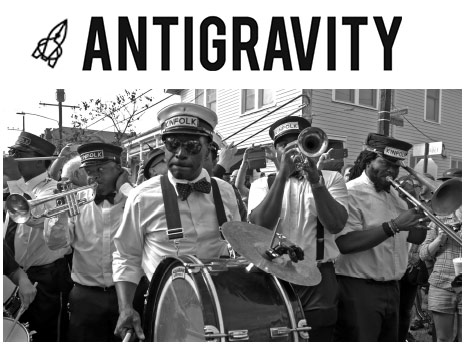
By William Archambeault
Up From The Streets follows the extensive history of New Orleans music, ranging from the days when slaves played drums in Congo Square to modern booty-shaking bounce. This film, hosted by Terence Blanchard, largely revolves around musician interviews, allowing culture bearers to speak about the culture themselves. The documentary sports insights from a who’s who of New Orleans music, including since-passed legends like Allen Toussaint, Art Neville, and Earl Palmer. Big names like Robert Plant and Keith Richards also appear but do not overpower the local-centric narrative.
Up From The Streets comprises many interconnected short sections, each focusing on a particular artist or period in the city’s musical history. By marrying these stories, the film shows how New Orleans musicians throughout time have innovated while also constantly building upon what came before them. These stories are interspersed with snippets of performance footage, much of which was recorded for this film. Some highlights include Allen Toussaint’s “Yes We Can” and the Neville Brothers’ “Yellow Moon.” Fans will surely argue over omissions but Up From The Streets does an impressive job of telling this history in a way that will interest both new fans and life-long devotees of the New Orleans sounds.
WA: Up From The Streets primarily revolves around musicians’ reflections on New Orleans and its musical history. How important was it for this film to emphasize their insights?
MM: Extremely important. New Orleans is a city of storytellers, which is how we have passed down our history (good and bad) and our traditions. Their insights are a critical part in understanding the evolution of their music, and our culture. The film shows that music is an expression—of joy, protest, sadness, love, etc. The reason that this expression became so powerful is that it is not just a collection of words and notes, it is that combined with life experiences past and present. To hear musicians talk about their experiences gives a better understanding of the historical, social, and cultural basis of the music…
Download the PDF to read the entire interview with Michael Murphy
